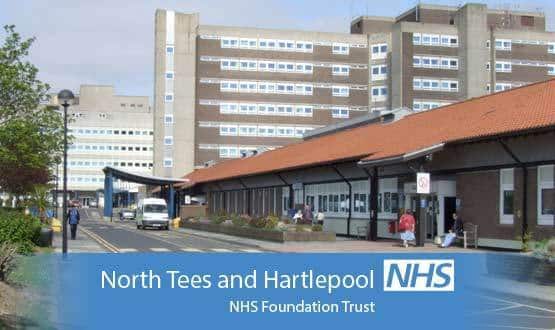In the vanguard of the Covid-19 tech revolution
- 14 July 2020

Ian Bailey, district nurse and senior clinical director at EMIS Health looks at how nurses have embraced technology during the Covid-19 outbreak and argues that changes in working practices are now the new normal.
For many of us, the beginning of June brought proof that the digital revolution in primary care since the Covid-19 outbreak is here to stay. The British Medical Association’s coronavirus survey revealed that nine out of ten GPs want to carry on doing consultations remotely, even after this terrible pandemic is over.
More than three quarters of them also said that using video technology for multi-disciplinary and clinical team meetings should continue. It is the same for community nurses, who have harnessed technology to give essential and complex hands-on care in people’s homes under the most challenging of conditions.
As early as the beginning of April, a Royal College of Nursing survey of district nurses reported that ‘technology has come to the fore, with online team meetings and virtual huddles supporting care delivery, team working and staff morale.’
The turnaround in traditional working practices during an extremely tough three months for the NHS has been stunning. Absolute necessity combined with a willingness to adopt technology put nurses alongside GPs in the vanguard of the revolution. Here is how they are doing it.
Accelerating PCN collaboration:
Community nursing teams remain responsible for most of the face to face clinical assessment and care of vulnerable patients in their own homes, and nobody has found a way to do that remotely – yet! But with PPE supplies limited, and staff shortages worsening due to sickness and self-isolating, they had to find ways of working more efficiently while protecting themselves and vulnerable patients.
For example, in some areas of England, technology is helping to accelerate collaboration across Primary Care Networks. There has been much greater use of video conferencing for operational team meetings, handovers and multi-disciplinary team meetings and, as in the business world, it has become the new normal. It means that nurses can start and finish the day without going to an office or clinic and maximise the use of their time at patients’ homes, saving on travel and making care much more efficient.
Joint video consultations
District nurses and specialist nurses have begun doing joint patient reviews via video. An increased use of video technology on mobile devices has enabled housebound patients to continue to receive the best possible care from nursing and therapy services, while reducing the number of visiting clinicians – especially important for shielded patients. Not only is this reducing the infection risk both in the home and in hospitals where many specialist nurses are based, it is also saving on vital PPE.
Real-time electronic record sharing enables all the members of the primary care team to view episodes of care at the touch of a button and provide real-time advice and support.
As the pressure to return to ‘normal’ healthcare continues, health economies are looking at other ways of caring for patients who have been shielding at home, to minimise the risk of infection, yet restore and maintain necessary care.
Before Covid-19, those with long term conditions such as diabetes were seen in clinics and at GP surgeries. Now we are starting to see accelerated collaboration between primary and community services to identify patients with deficits in care and restore optimal care pathways.
Patients are being assessed by community nurses in ‘cold’ hubs rather than at their GP practice, providing targeted care in a safe, effective manner, while also sharing the demand and leveraging the benefits of shared care. Electronic record sharing among community, primary, and secondary care has come into its own here, to provide the best of care while minimising the Covid-19 risk to patients and staff.
There are also the care needs to consider of patients discharged from hospital after Covid-19, such as nutritional restoration, insomnia, and chronic cough. The accelerated collaborative models born of the Covid-19 response (and enabled by technology) will need to be maintained to manage this additional demand. It will lead to long-term collaboration and become the new normal.
Crunching the data
As the UK strives to contain the outbreak, the importance of data analysis has become clear to everyone. Community nurses along with their primary care colleagues will rely on local data crunching when a Covid-19 vaccine arrives, and local immunisation campaigns begin.
We have now started to see a robust flow of Covid-19 test results into GP records, so the data is available for economies to start considering how they can best remodel and redistribute capacity. The greater acceptance and realisation of benefits of wider record sharing during the pandemic must continue and enable health economies to work in new ways.
The future
Community and primary care teams have rapidly turned to technology that is intuitive to use and proven to work as they protect and care for their patients. For me, it shows yet again that a successful digital strategy is about putting clinicians’ needs first, rather than the software. Nurses have seized the digital agenda and will not let go of it now. For the first time, we have a national chief nursing information officer, and a recent survey showed that local CNIOs want a formal career pathway and the recognition that goes with the role among other clinical colleagues.
Nobody will forget this turbulent year, and for many it has brought personal tragedy and loss. I hope we will not forget that it is also the International Year of the Nurse, a somewhat bitter-sweet coincidence as the profession shows its dedication and adaptability as never before. It is an incredible time to be on this digital journey, and I’m very proud to be playing my part as a nurse.




